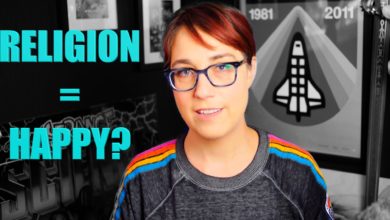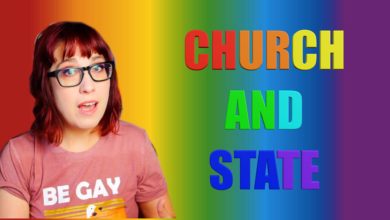
Last week, Alabama State Representative Steve Hurst (R) (obviously) introduced a bill that would require teachers read a prayer before class each day for up to 15 minutes. This is an obvious violation of separation of church and state, but it’s pretty clever how he’s trying to get around it: the prayer to be read will be a verbatim reading of a prayer used to open the U.S. Senate or House of Representatives, and will be considered part of a study of the U.S. government.
I learned of this bill via Gawker, where the headline was “Alabama Legislators Pass Bill Requiring School Prayer Every Morning.” As far as I can tell, the bill has not been passed yet and while the prayer would be required, students wouldn’t be required to sit through it. But it’s that last point that I feel is important – Hurst argues that the prayer wouldn’t violate students’ 1st Amendment rights. If that’s true, then why provide an alternative for non-Christian students? If this is really about learning about the U.S. government, then all students should be expected to attend the lesson.
But of course, that’s not what it’s about. The bill is just another way for Christians to force their religion into public spaces. It’s not enough that students are free to pray on their own as they see fit – instead, an authority figure should teach the kids prayer in the same way they teach multiplication tables. And by forcing the prayers to be chosen by the teacher from amongst those prayers that open Congress, Hurst ensures that the prayers in question are likely going to be Christian. It’s brilliant, really.
I have little doubt that this will never pass into law, and even if it does pass, there’s no way a court would allow it. With luck, though, the ridiculous bill will force courts to acknowledge that Congressional prayers at the federal, state, and community level are pointless and unconstitutional. The Supreme Court is considering this issue right now in Town of Greece vs. Galloway, and according to Americans United a decision is expected in June of this year. Let’s hope they notice Hurst’s bill and see the absurd consequences of allowing our governmental employees to officially endorse a religion at the start of every work day.





Unfortunately, the Supreme Court has already ruled that congressional prayer, at least, is constitutional; this was Marsh v. Chambers in 1983, in which a Nebraska state senator sued in Federal Court over the legislature’s practice of opening sessions with prayer and having a state-sponsored chaplain. The Supreme Court reversed the lower court and held both practices constitutiona 6-3. In Town of Greece, part of the argument is that the town meeting is of a different nature than legislative prayer (that in the latter, the prayer is offered for and by the legislators themselves, whereas in a meeting such as those held in the Town of Greece, citizens petition directly to the board for executive action), and that moreover the specific practice in Greece is coercive because the prayer is not directed to the Board (the chaplain faces the audience and has his back to the Board, asks the audience to rise and participate, etc). It is unlikely that the Supreme Court will reverse Marsh, so it is likely that legislative prayer will still be an exception even if (as they should) they strike down Greece’s practices. However, this is neither here nor there in regards to the bill in question, because the Courts have also ruled quite clearly that state-sponsored (or administration-sponsored) prayer in *schools* is most definitely unconstitutional.
There’s another issue here that always gets left out of nonsense like this: the teachers! The state compelling teachers, who may be christian, Jewish, Buddhist, atheist, Hindu, Muslim, etc. to recite a prayer which may be outside their faith should make this a non-starter as well. Public school teachers have have rights not to be forced into reciting prayers as well!
I am a former teacher, although always a private schools so there was no church/state separation. Still there were plenty of occasions where a prayer was said or a hymn was sung (think Bacculuareate or however that is spelled) and I would simply quietly not recite the prayer or sing the hymn. I will say the administration of all the schools I taught at were all right with this. Students were sometimes curious and would ask and we would usually talk for a few minutes and then they would go on their merry way. Strangely enough, the only people who ever gave me any flak were other teachers who thought I should go along (especially lower school teachers as they were k-12 schools…lower school teachers don’t like the boat being rocked).
So if this goes anywhere, I hope a teacher takes up this as well as the students.
Eh, it’s not all that clever. Hurst is like one of those guys who thinks if you ask a drug dealer if she’s an undercover cop, she’s not allowed to lie to you. Legislative prayer is (as Arturo notes) kind of a special beast because of the fiction that legislators can’t coerce themselves; ‘study of the government’ doesn’t make otherwise illegal conduct legal. I’m not sure if he really believes his own bullshit or if he knows it’s a doomed bill that will excite his base.